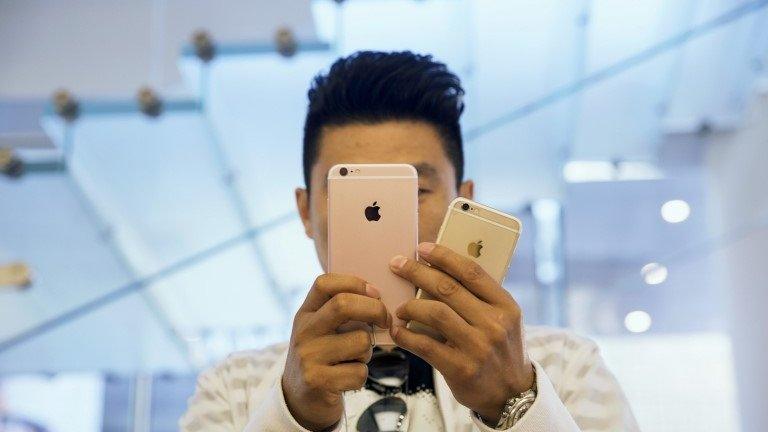Disney sues over Chinese cartoon 'strikingly similar' to Cars hit
- Published
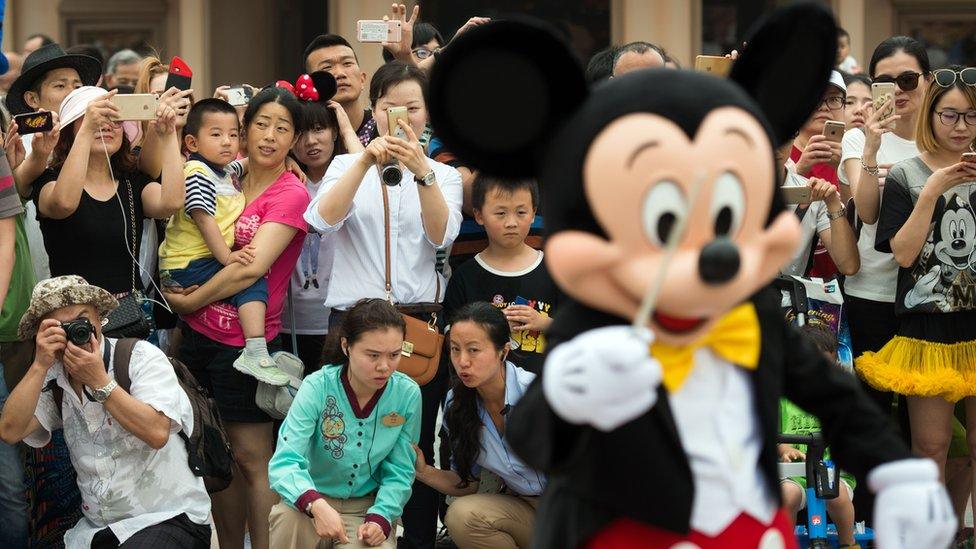
Shanghai Disney officially opened on 15 June
A week after Shanghai Disney opened its doors, China has become embroiled in a high-profile copyright court case with the children's entertainment giant over the striking similarities of a cartoon.
Disney subsidiaries Disney Enterprises Inc. and Pixar are suing Chinese companies G-Point, PPTV and Bluemtv for hosting images and posters of 'The Autobots', a Chinese film that was released in July 2015.
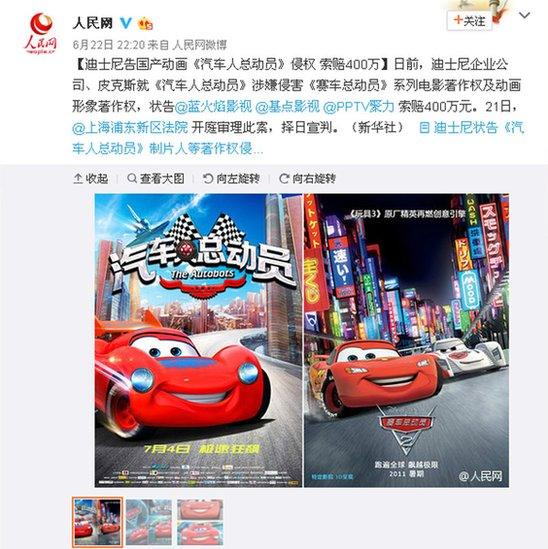
China's media have been comparing Chinese film 'The Autobots' (L) to Disney's 'Cars' (R)
'The Autobots' was criticised last year at home and abroad for being visually similar to the Disney animated franchise 'Cars' but has only gained wide media attention since going to court on Tuesday.
Critics are sceptical over whether Disney will win the case, noting that China has ripped off overseas-produced cartoons before.
'Extremely similar'
Thousands of Chinese social media users are talking about the case on the popular Sina Weibo microblog, saying that 'The Autobots' is a "blatant copy" and that they "support Disney".
Chinese papers have also noted similarities between the two productions, but with more carefully worded editorials. The Beijing Economic Daily says that the two films are visually "extremely similar", and highlights that this is not the first time it has happened.
China has been criticised in the past for copying a number of Japanese cartoons.
These include the 2011 production 'Train Hero', which was criticised for "suspected plagiarism" because of its strong similarities to the Japanese animation 'Hikarian' in 2011.
In 2007, a CCTV Children's Channel cartoon 'Big Mouth Dodo' was also criticised for its similarities to another Japanese production, 'Crayon Shin-chan'.
'The curse of bootleg'
Videogame critics note that China has escaped punishment for replicating Disney products before.
On 13 June, US comedian and videogame critic JonTron remarked on the explosion of bootleg games and products based on Disney films.
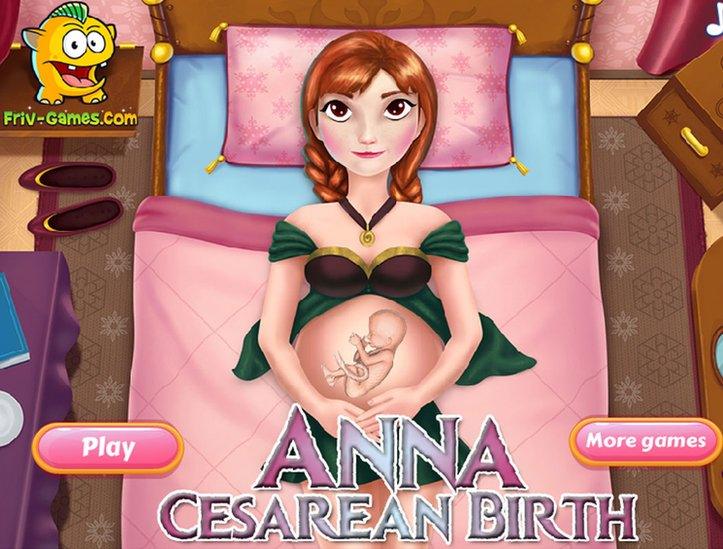
Disney's popularity has spawned many bootleg games
In a YouTube video with over three million views, he says that Disney is not safe from "the curse of bootleg". He singles China out as being "farther away from US jurisdiction and much better at Disney bootlegging" than any other country, and says that it is able to produce products like 'Bear of the Interest', a toy that strongly resembles Winnie-the-Pooh, but has flashing eyes and is described in Chinglish on the box as a "high class weapon".
JonTron also notes the wider trend of bootleg online games based on Disney films internationally, and highlights the launch of questionable online games 'Elsa Frozen Brain Surgery' and 'Anna Cesarean Birth' [sic], based on the 'Frozen' franchise.
'Rely on foreign programmes'
The case has perhaps comes as a surprise in China, given that its media regulator recently introduced strict new guidelines.
On 19 June, the State Administration of Press, Publication, Radio, Film and Television (SAPPRFT) issued new rules on "foreign-inspired" shows in a bid to boost domestic production.
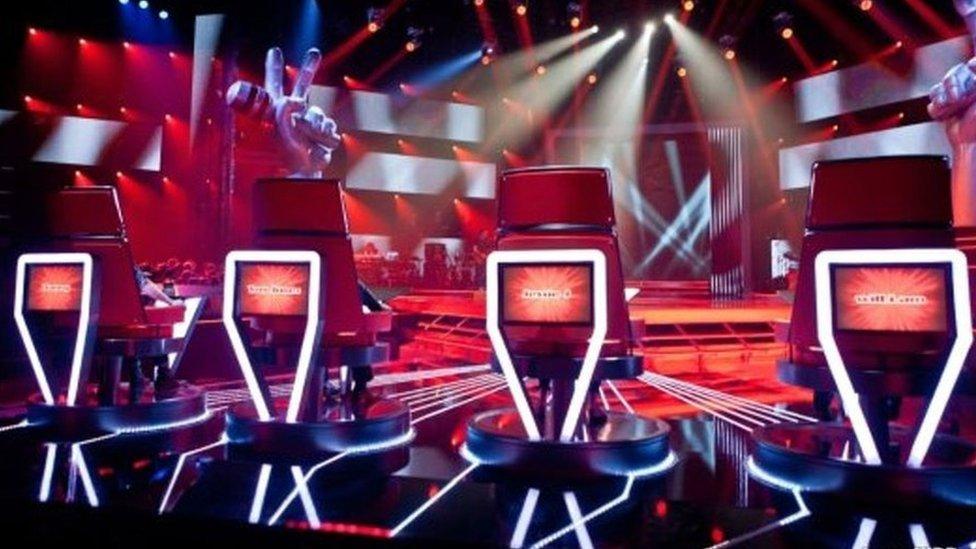
China has its own version of the popular reality show 'The Voice'
The Xinhua news agency said "the new regulation came as many TV channels rely on foreign programmes, with few original ones. The new regulation will boost self-innovation by Chinese TV channels".
Along with other mainstream outlets, it highlighted widely-praised programmes like 'The Voice of China', which was "inspired by The Voice of Holland", and 'Running Man', a variety show that is based on a South Korean series of the same name.
Copyright losses
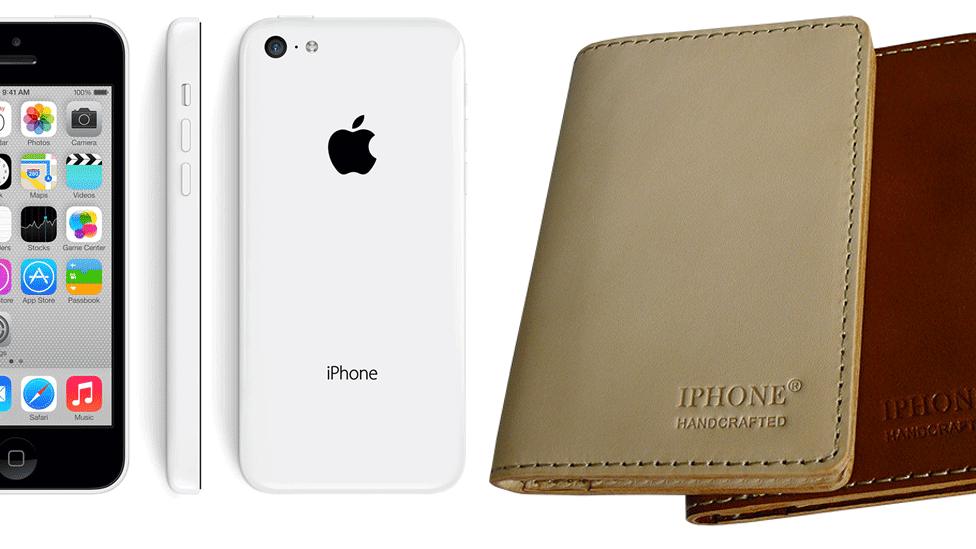
iPhone lost a trademark case against Xintong Tiandi in May
While China has been embroiled in a number of copyright infringement cases, in recent months some high-profile companies have lost cases against Chinese companies.
Electronics giant Apple was especially hard hit. On 17 June, the Beijing Morning Post noted that a regional court specialising in intellectual property rights had determined that the iPhone 6 and iPhone 6 Plus were an infringement of a Chinese patent, the 100C produced by Shenzhen Baily.
National broadcaster China Radio International said that the court had added that "Apple must stop selling the products and providing related services".
In May, Apple also lost a trademark fight over the 'iPhone' name in China against a handbag and leather goods firm Xintong Tiandi, which had trademarked "IPHONE" in 2010.
Both moves came as a blow, as China is the second biggest market for Apple products.
BBC Monitoring, external reports and analyses news from TV, radio, web and print media around the world. You can follow BBC Monitoring on Twitter , externaland Facebook, external.
- Published4 May 2016

- Published27 April 2016
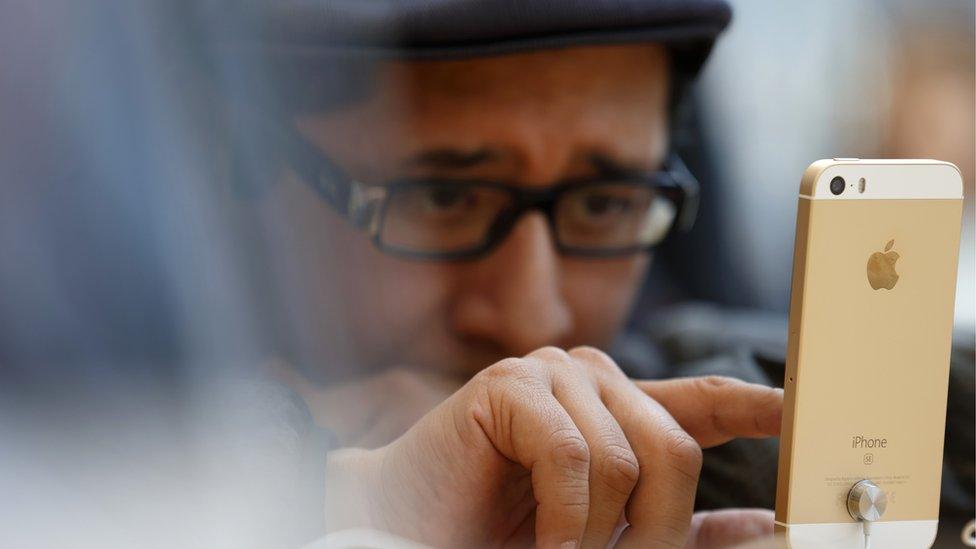
- Published22 April 2016
